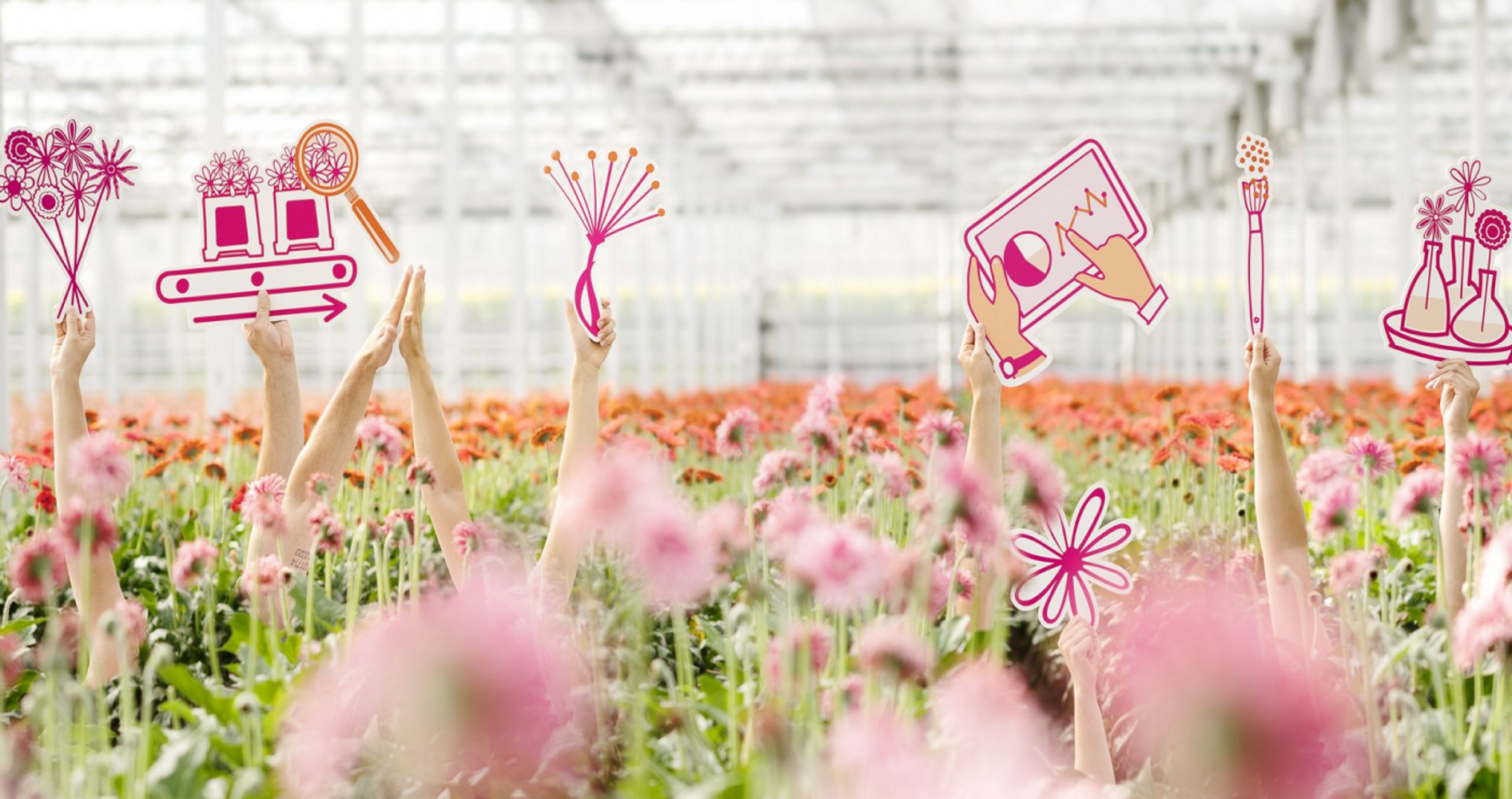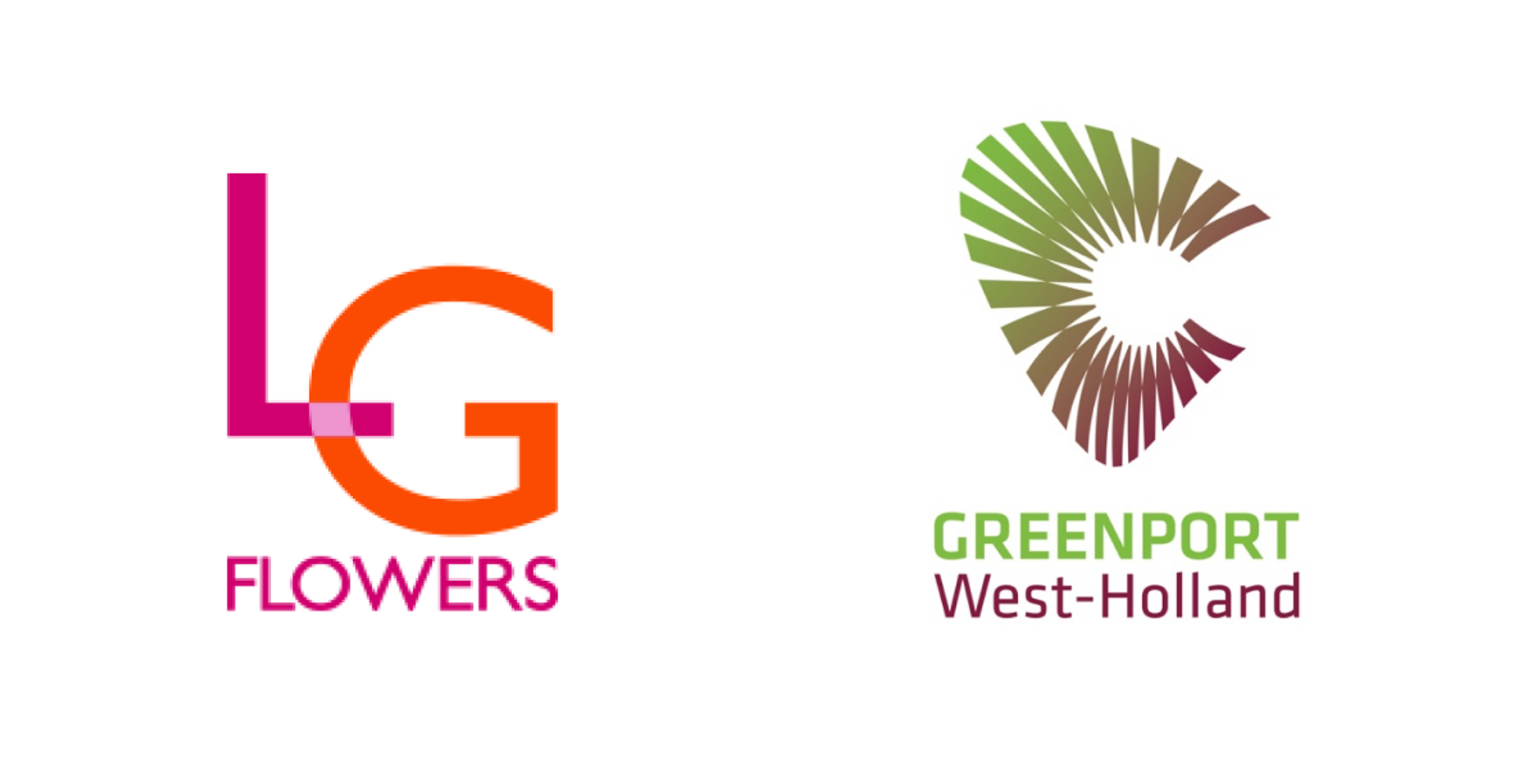Business Intelligence for Sustainable Flower Production
by LG Flowers & Greenport

Business Intelligence for Sustainable Flower Production
by LG Flowers & Greenport
Flower entrepreneurs need help making sustainable decisions with data on key changes in internal and external monitoring systems. This includes internal factors, such as company policies, and external risks, such as market fluctuations, energy prices, labour shortage, inflation etc.

Business Intelligence for Sustainable Flower Production
by LG Flowers & Greenport
Dive deeper
Background
Flowers are a luxury product being produced and used in many diverse ways around the world on a daily basis and on an impressive scale.
The Dutch flower entrepreneurs’ strategy is to provide a year-round very accessible high-quality product. The flower growers at LG Flowers work on improving and ensuring the sustainability of their production by saving energy, capturing water, implementing tech solutions to reduce costs, waste, and impact, and paying attention to good labor circumstances. The management uses a broad set of tools to generate data for analysis and monitoring. They use the available data and insights of the business to adjust capacity and production as needed. However, currently, the big scale of production and the navigation fluctuating of international markets (EU, China, USA, Russia, etc.) lead to greater logistical complexity and respectively a potential negative impact on the environment. Another added challenge to this is to handle the impact of the changing geopolitical, climate, and other financial and societal trends. Examples are energy prices, water scarcity during summer, labor shortage, high inflation, etc. All these local and global developments complicate decision-making.
Problem Statement
Flower producers and other greenhouse growers are challenged as any business by fluctuating resources, climate change, business risks such as recessions, raising prices (energy, water, goods, etc.) and they struggle to optimize their strategic decision-making. For many flower (and other greenhouse products) entrepreneurs, the question now is “can they keep production active outside of the spring/summer season and more importantly continue to do so in a sustainable manner?”
Current decision-making is time-consuming, uncertain, and less objective since it is done manually. The complexity is too big for the entrepreneur to combine all data inputs and make optimal decisions. There is a need to better and faster organize the input, presenting the information visually which can allow for more sustainable production and personnel planning.
Mapping the Challenge
How can we help flower entrepreneurs to make more sustainable decisions based on the collected data by having a clear overview and indicators of change in the relation between external and internal factors when planning and adjusting production capacity and demands instead of manually processing scattered data and being misled by big competitors who are raising prices for profit?
Sub-questions
- How to make effective short-term decisions without jeopardizing long-term partnerships and commitments?
- How can the entrepreneur engage with clients/traders/end users by providing transparent information for them to better understand the decisions and sustainable practices?
Criteria
- The proof of concept should demonstrate providing key alerts for pivoting and decision making
- The solution should maintain or improve sustainability of production and workforce management (example: saving energy, capturing water or redirecting water use, reduce costs, reducing strain and uncertainty for workers, etc.)
- The solution should process and visualize connections between data inputs on a daily basis.

Other challenges
Updates from the Hackathon for Good world

Future of Greenhouse Energy & Heat Efficiency
by undefined
The energy transition within the greenhouse sector is a necessary. Their negative impact on the environment is based on their inefficient use of energy and heat. Work on enabling them to make calculated decisions by giving them insights into their options and enabling the greenhouse growers to cooperate.

Assess The Impact of Governmental Policies Before They Get Introduced
by undefined
As of now, there is no process of validating new policies and legislation before introducing them. The Municipality of The Hague is looking for ways to assess the impact of new to be introduced, regional policies by identifying the businesses which are affected and analyzing how a proposed policy will impact local entrepreneurs.

Anonymisation of Sensitive Data on Social Media
by undefined
During the conflict in Ukraine, a need for fast communication and security became a priority. 510, the Data & Digital team of the Netherlands Red cross, is monitoring the information on group chats to provide help. Anonymisation of data is important to protect vulnerable groups. That’s why potential further improvement of anonymisation of sensitive data is always welcomed by the team.






